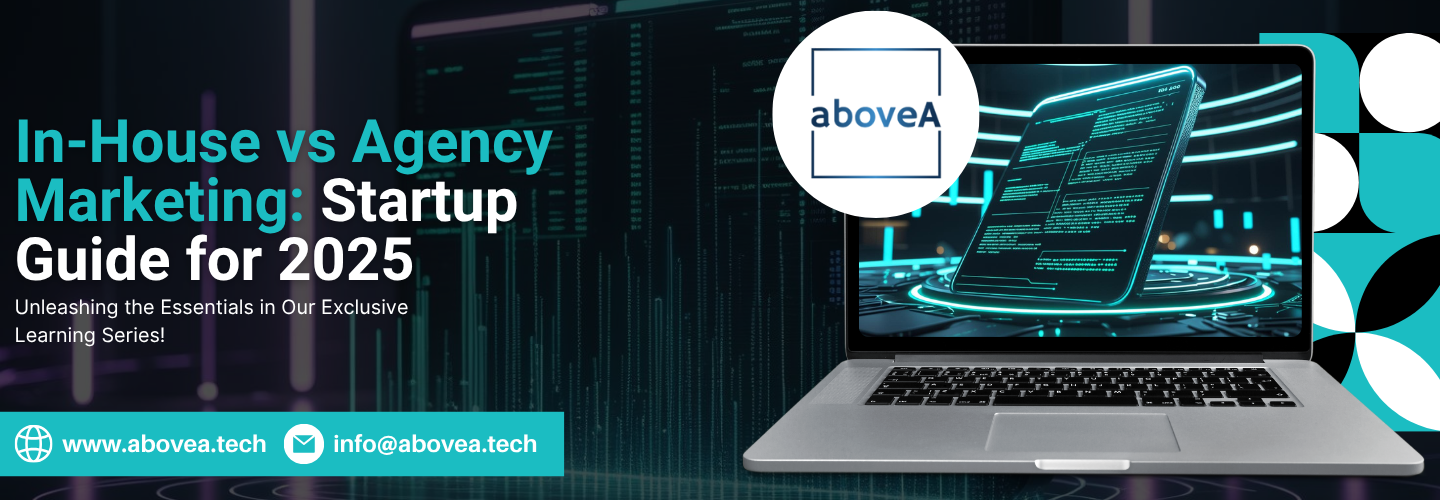

Mariam Akorede
Content writer and legal-tech researcher. Passionate about blending clear communication with legal insight to craft accessible, strategy-driven content for growing businesses.
- Last updated on October 11, 2025
In-House vs Agency Marketing: What Startups Need To Know First
In-house versus agency marketing is a crucial decision a startup needs to make in its early stages. This can determine the overall success and growth of your startup. So, which is better for a startup’s growth?
Well, that depends on several factors, including the startup’s marketing goals and the startup’s budget. Choosing between an in-house team and a marketing agency can define your startup’s success in 2025. This guide compares both models: costs, speed, and scalability, so that you can make smarter decisions.
Still unsure which path to take?
Get a custom startup marketing plan – based on your goals, team size, and budget
Table of Contents
What Is an In-House Marketing Team? Structure, Cost, and Use Cases
An in-house marketing team refers to a company’s marketing efforts that are conducted by internal employees rather than outsourced to an external marketing agency. In-house marketing is beneficial to use in situations where the marketing requires a strong understanding, or the startup needs control over marketing, either due to tight deadlines or a need for transparency. The basic structure of an in-house marketing team typically includes a marketing manager/director, a content creator/social media manager, and a digital marketing specialist. There may also be an SEO specialist, a content specialist, and freelancers.
When deciding if an in-house marketing team is right for your startup, you should consider the pros and cons, which are outlined below.
Pros of an In-house Marketing Team
- In-house marketing teams can be more aligned with the startup and its goals.
- Greater control over marketing for the startup.
- Long-term investment for the startup.
Cons of an In-House Marketing Team
- The cost of an in-house team varies, but it is generally more expensive to build an in-house team than to hire an agency.
- Less marketing expertise and skill set.
What does a Marketing Agency offer to startups? Services, Speed, and Scalability.
An external marketing agency is one where a company outsources its marketing to a hired marketing agency, rather than using the company’s own employees.
Services: Marketing agencies can offer a range of services to drive growth for startups. These services include brand strategy, digital marketing, social media management, content creation, market research, and search engine optimisation, etc.
Speed: With access to more specialised resources, external agencies typically have a higher speed and scalability than in-house marketing teams. In terms of speed, marketing agencies have access to resources and tools that enable the quick execution of marketing campaigns and strategies, including specialized tools, expert teams, and established practices. This can be particularly useful for a startup during its growth phase, when trying to connect with new customers in a short period.
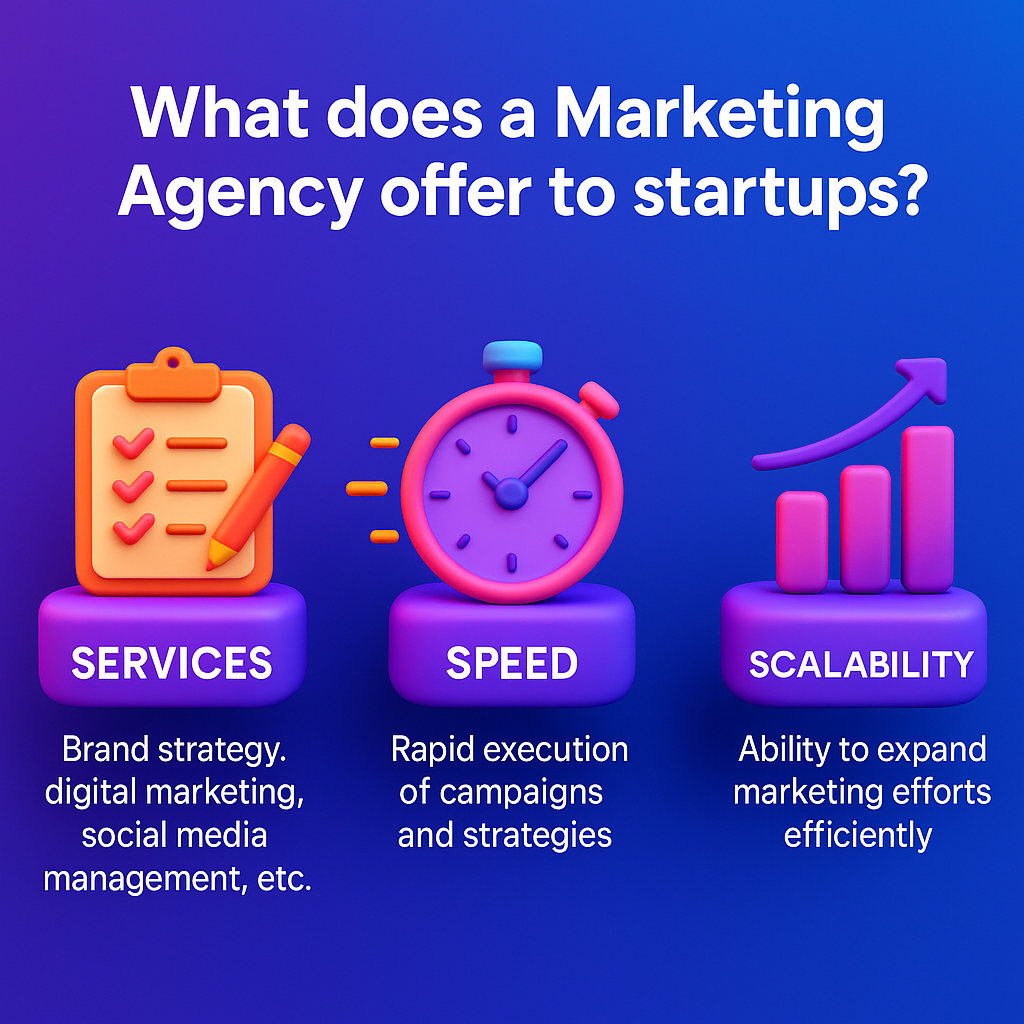
Scalability: As a startup scales up, its marketing needs may also change and increase. Marketing agencies have access to extensive resources that can be tailored to meet a startup’s increasing marketing demands.
Pros of a Marketing Agency
- Marketing agencies offer specialised expertise in marketing and can be more cost-effective than investing in an in-house marketing team.
- Access to more marketing tools and platforms.
- New perspectives and ideas for the startup.
Cons of a Marketing Agency
- Startups have less control over marketing agencies
- Less brand immersion/understanding.
- It may be more expensive than an in-house team in the long term, as the startup will need to pay the retainer fee on a regular basis.
In-House vs Agency: Full Cost Breakdown for 2025
This table breaks down the key costs for an in-house marketing team versus a marketing agency.
In-House | Agency | |
Salaries | $180,000 | $0.00 |
Tools | $10,000 | $0.00 |
Training vs Retainers | $5,000 (Training) | $60,000 (Retainer) |
Set-up Fee | $0.00 | $5,000 |
Total | $195,000 | $65,000 |
As you can see from the table, in-house marketing is more expensive than using a marketing agency; however, it can be a good long-term investment for a startup, depending on the startup’s goals.
Breakdown
Salaries: This refers to the wages a startup would have to pay its in-house marketing team (approximately $180,000). Startups do not need to pay any salaries to a marketing agency.
Tools: Startups need to invest in their own marketing tools and resources for the in-house team (approximately $10,000). However, for a marketing agency, this would be included in the hiring cost.
Training vs Retainers: Training refers to the amount a startup would need to invest to train their in-house marketing team ($5,000). A retainer refers to the amount the startup will pay the marketing agency to ensure they continue to work for them ($60,000).
Set-up Fee: There is no set-up fee for an in-house team. For a marketing agency, the setup fee covers the onboarding process, including the initial marketing strategy, campaign setup, and brand research.
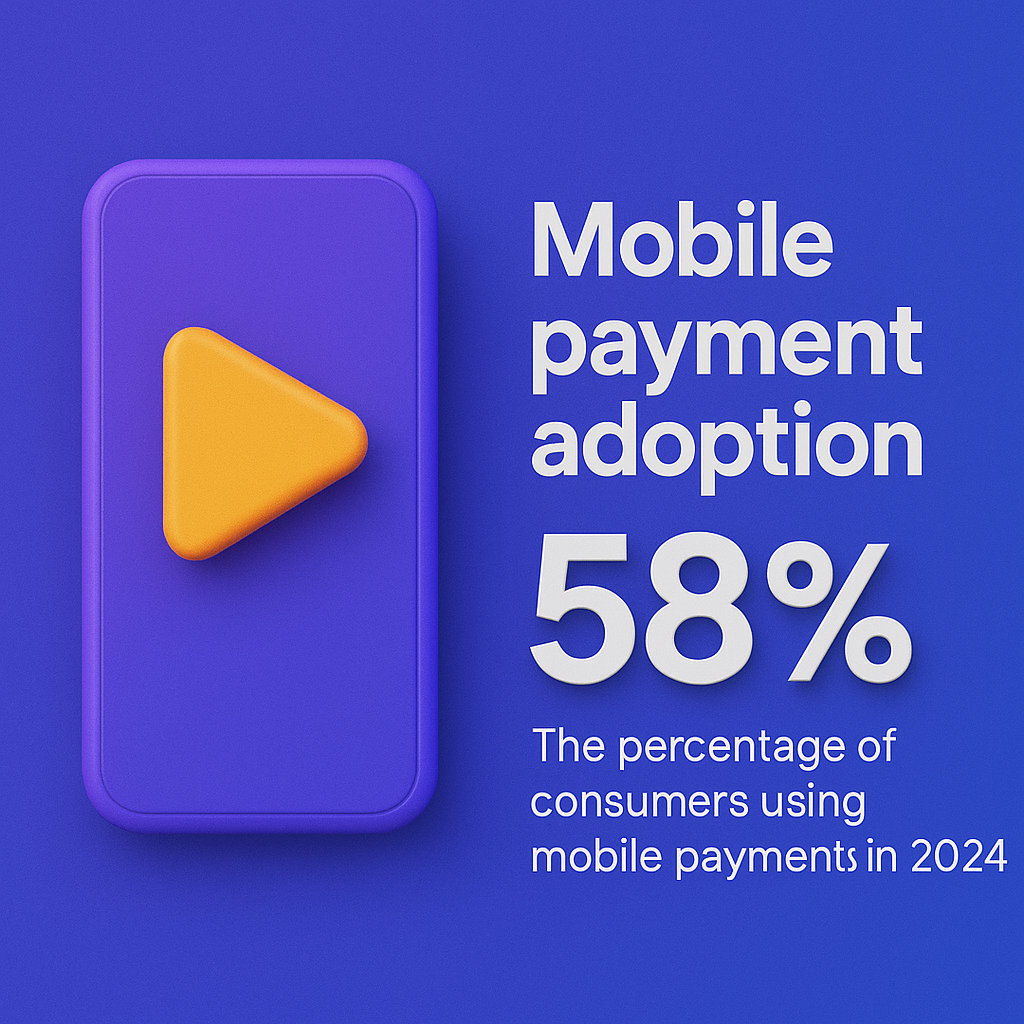
Speed and Execution: Which Model Delivers Faster Results?
Marketing Agencies often deliver faster results than an in-house marketing team due to access to established processes, specialised tools, and expertise. This means they are generally able to launch marketing campaigns faster. They also tend to have larger teams than in-house teams, which can make the processes quicker. The agency onboarding process is also usually quicker than the in-house marketing team hiring process.
However, although agencies can deliver faster results, have larger teams, and established processes, in-house teams can allocate more time to the startup’s marketing efforts, as they are solely focused on the startup rather than an agency with multiple clients. At the initial stage, in-house teams will be slightly slower due to the hiring and onboarding process, as well as limited resources. However, once the in-house team is established, there is streamlined decision-making and a deeper understanding of the brand and its customers, which can help accelerate the speed and execution of marketing efforts.
Overall, if your startup needs immediate execution and quick results, marketing agencies usually deliver faster, but for long-term, consistent work, an in-house team can match the speed over time. You can also apply lean, high-impact methods from our 12 Growth Hacking Strategies to Boost Your Business in 2025 to speed up marketing outcomes – whether you work with an agency or an in-house team.
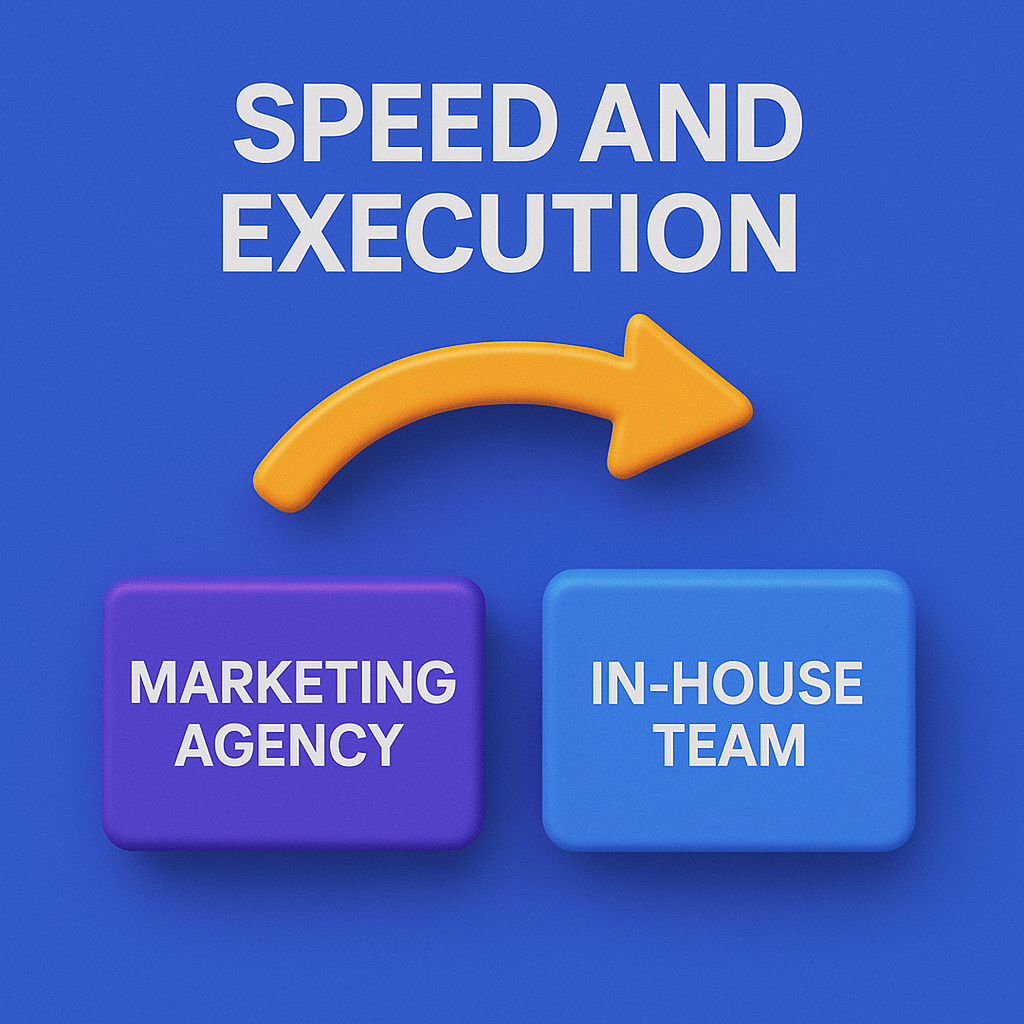
Marketing Quality and Consistency: Who Performs Better?
Marketing quality and consistency are key factors that startups should consider when choosing between an in-house marketing team or a marketing agency. Both in-house teams and marketing agencies have their strengths and weaknesses in terms of marketing quality and consistency, but it also depends on your startup’s structure, goals, and capacity.
Marketing Quality
Marketing agencies tend to outperform in-house marketing teams in terms of marketing quality, as they have access to specialized tools and an expert marketing team. This usually results in high-quality marketing. They also bring a broader marketing perspective and fresh ideas from working across industries and having specialists in areas, such as performance marketing, SEO, and digital marketing. Although these elements generally result in higher marketing quality, agencies still typically lack the deep brand understanding that in-house teams possess and may struggle to maintain a consistent marketing message. This is a weakness for marketing agencies in terms of the quality of marketing.
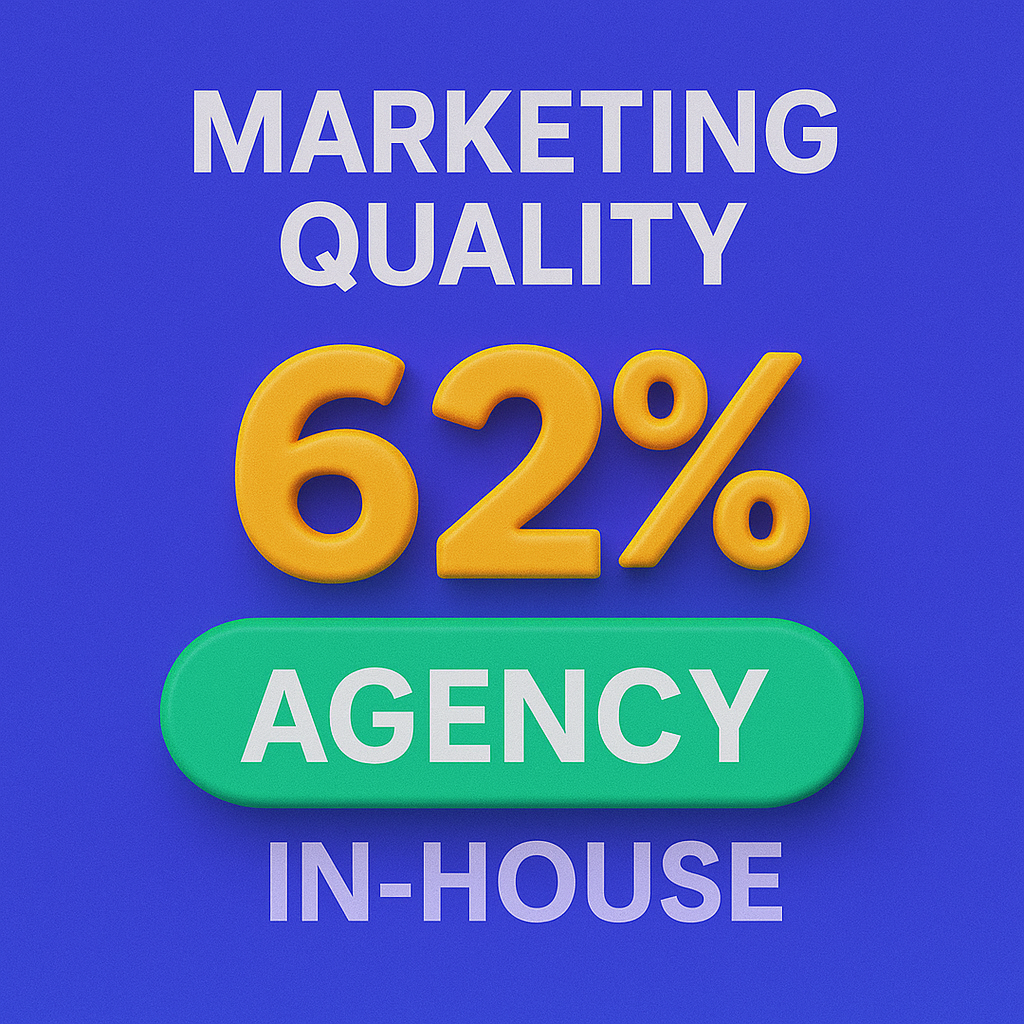
Marketing Consistency
Although marketing agencies outperform in-house teams in terms of quality, in-house marketing teams tend to offer more consistency because they work more closely with the startup and are solely focused on the brand. They are therefore more aligned with the startup’s mission and goals, making the marketing efforts more consistent and aligned with the startup. However, the quality and consistency can be weakened if the in-house team lacks specialised tools and expertise that a marketing agency would have.
That being said, there are strengths and weaknesses for both in-house marketing teams and marketing agencies in terms of quality and consistency. However, agencies tend to excel in quality marketing and quick results, while in-house teams tend to have the best marketing consistency.
When to Build an In-House Marketing Team?
A startup should consider building an in-house marketing team once it begins to scale and has marketing needs. However, startups should ensure they only make an in-house marketing team once they have the budget for recruitment, training, and marketing tools and resources. Once all of these are budgeted for, a startup is ready to start building their in-house team.
It is ideal to build an in-house marketing team if your startup requires marketing consistency, firm control over marketing, and deep brand knowledge. It is more expensive to build an in-house team than to hire an external marketing agency. It is more cost-efficient over time than relying on agency retainers.
When to Hire a Marketing Agency for Startup Growth?
It is recommended that a startup hire a marketing agency for growth only once they have established a clear brand, achieved product-market fit (when a product successfully meets the needs of their specific market and is desired by enough people to sustain growth), and have the budget to hire a marketing agency. A marketing agency should be used if the startup is in need of specialised marketing tools, new strategies, and ideas for marketing, and if an in-house team lacks the marketing expertise to conduct this. It would be a good idea for a startup to establish an in-house marketing team once operations scale, and then consider switching to a marketing agency if the in-house team lacks the capacity for the marketing efforts.

The Hybrid Marketing Model: Combining Agency and Internal Teams
The hybrid marketing model combines aspects of both in-house marketing and agency marketing. The benefits of using a hybrid model are that it can offer a cost-effective solution by investing only in the expertise and resources needed, thereby avoiding the high costs of a large in-house team and the rates of a full-service external agency.
With a hybrid model, the in-house team and the marketing agency can be responsible for different aspects of the marketing efforts. The in-house marketing team is typically responsible for providing in-depth brand knowledge and day-to-day execution. At the same time, the marketing agency would be responsible for providing specialised tools and expertise, as well as the scalability of the marketing.
By utilizing this model, startups can scale quickly while retaining marketing control. This is particularly useful for startups that need quick marketing results while still wanting to invest in an in-house team for the long term.
Real-World Examples of In-House and Agency Setups
Examples of In-House Marketing:
- Unilever – U-Studio.
- BBC – BBC Creative.
- Google – Google Creative Lab.
- Channel 4 – 4creative.
- Lego – The Lego Agency.
Examples of Full-Service Marketing Agencies:
- WPP
- Omnicom
- Publicis Groupe
- Interpublic Group of Companies (IPG)
Fictional Example of an In-House Marketing Team vs Marketing Agency
This is a fictional example of a startup’s results from using an in-house team compared to outsourcing to a marketing agency.
Startup Example: DigitalOne (Digital Services App)
Company: DigitalOne – a startup offering an easy way to create and sell digital products.
Goal: Launch in 6 months and acquire 10,000 users in the first year.
In-House Team | Agency | |
Cost | Cost (Year 1): ~$195,000 (Salaries + Tools + Training) | Cost (Year 1): ~$70,000 (Set-up + $5K/month retainer) |
Advantages |
|
|
Disadvantages |
|
|
Result | 10,000 users in Year 1 | 14,000 users in Year 2 |
In summary, the marketing agency can achieve the startup’s marketing goals more quickly; however, the in-house team is more cost-efficient over time and is a good investment for the startup.
Conclusion
Choosing between an in-house team and an agency comes down to your startup’s goals, budget, and growth stage. Agencies bring speed, expertise, and scalable tools. In-house teams offer control, consistency, and deeper brand understanding. If you need quick results, go with an agency. If you want long-term brand alignment, build in-house. Many startups now use a hybrid model – combining agency agility with internal insight. This balance delivers both growth and stability. The key is to align your marketing structure with your current needs while staying flexible as you scale. Start small, test, and adapt your approach as your business evolves.
Frequently Asked Questions
Is it cheaper to build an in-house marketing team or hire an agency?
Initially, it is cheaper to hire an agency than to build an in-house team. The cost of building an in-house team covers salaries, tools, and training, whereas with a marketing agency, these costs are all included in the retainer fee. However, over time, an in-house team can become more cost-efficient than an agency.
When should a startup hire a marketing agency?
A startup should consider hiring a marketing agency when it begins to grow, if there is a need for specialized tools and marketing expertise, and if it has the budget to hire a marketing agency.
What’s the biggest benefit of going in-house for marketing?
The most significant benefits of going in-house for marketing include consistent marketing efforts, a deeper understanding of the brand, increased control over marketing, and long-term investment.
Can startups use both an agency and an in-house team?
Yes, startups can utilize a hybrid marketing model that combines elements of both a marketing agency and an in-house marketing team. This approach is an effective way for startups to leverage the strengths of both an in-house marketing team and a marketing agency.

